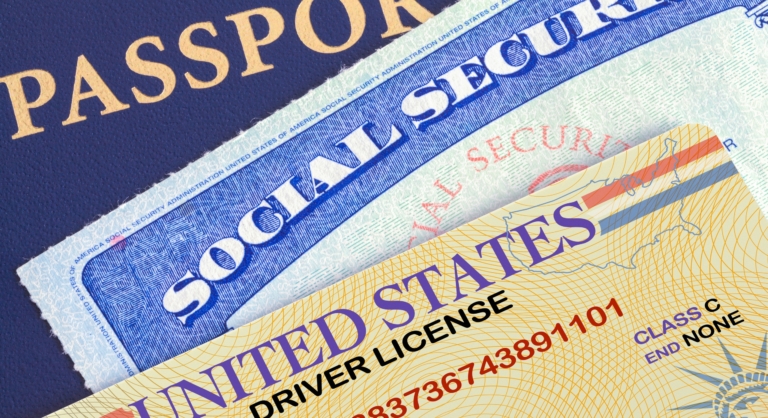Pandemic to Permanent? Proposed Changes to the I-9 Verification Process
Welcome news for U.S. employers—the federal government has issued new proposed rules that may lead to further temporary or permanent changes to the I-9 verification process. As set forth in the Notice of Proposed Rulemaking published by the U.S. Immigration and Customs Enforcement (“ICE”), Department of Homeland Security (“DHS”), on August 18, 2022 (the “Proposed Rule”), alternate options for some or all employers are on the horizon. ICE, as a federal law enforcement agency under DHS, monitors and enforces compliance with Form I-9.
Form I-9 Documentation Requirements
Pursuant to the employment eligibility provisions of the Immigration Reform and Control Act of 1986 (“IRCA”) as set forth in the Immigration and Nationality Act (“INA”), employers are prohibited from hiring any individual (including citizens of the United States) without first verifying their identity and employment authorization via Form I-9. Prior to the beginning of the COVID-19 pandemic, employers were required to examine hard copies of worker identification documents (such as passports, driver’s licenses, Native American tribal documents, and United States Social Security cards), in person within three business days after the first date of employment, to ensure that the documentation appeared to be genuine and that they related to the individual who presented them.
I-9 Verification Flexibilities in the Age of COVID-19
Given the logistical challenges presented by the pandemic, DHS announced a series of temporary flexibilities regarding the in-person I-9 document inspection process, which were intended to encourage social distancing and enable remote work. The first announcement, issued March 20, 2020, indicated that DHS would evaluate employers’ I-9 completion practices (regarding physical inspection of I-9 documents) on a case-by-case basis. As of April 1, 2021, DHS indicated that the in-person inspection of I-9 documents only applied to “those employees who physically report to work at a company location on any regular, consistent, or predictable basis.” Additionally, employees hired on or after that date and who work exclusively in a remote setting due to COVID-19 related precautions, were temporarily exempt from the physical inspection requirements “until they undertake non-remote employment on a regular, consistent, or predictable basis, or the extension of the flexibilities related to such requirements is terminated, whichever is earlier.” As noted in our prior alert, the most recent, temporary extension of these flexibilities is currently set to expire October 31, 2022.
The Proposed Rule
The Proposed Rule published on August 18, 2022 seeks to formalize the authority of the Secretary of Homeland Security (the “Secretary”) to “extend flexibilities, provide alternative options, or conduct a pilot program to further evaluate an alternative procedure option (in addition to the procedures set forth in regulations) for some or all employers, regardless of whether their employees physically report to work at a company location.” As noted in the Proposed Rule, DHS recognized that the COVID-19 pandemic caused more employers to adopt remote work arrangements. Citing studies by the Pew Research Center (“How the Coronavirus Outbreak Has – and Hasn’t – Changed the Way Americans Work,” Dec. 9, 2020 and “COVID-19 Pandemic Continues To Reshape Work in America,” Feb. 16, 2022), DHS observed that 61% of workers with a workplace outside of the home have indicated that they are choosing not to go into their physical workplace.
As set forth in the Proposed Rule, DHS is seeking comment regarding the following changes and their potential impact on employers:
- Revisions to I-9 document retention requirements, including the retention of documents presented remotely to employers via video, fax, or email;
- Requiring fraud detection and/or anti-discrimination training for employers;
- The applicability of alternate I-9 procedures to certain subsets of employers and/or employee populations; and
- Proposed changes to the I-9 form itself indicating that the I-9 documents may alternately be examined in a manner, “consistent with an alternative procedure authorized by the Secretary of DHS.”
The specifics of these and other potential revisions will, themselves, be the subject of subsequent proposed rulemaking.
Public Comment Period and Next Steps
DHS has invited public comment on the Proposed Rule through October 17, 2022. In the meantime, employers should be mindful that the current, temporary extension of I-9 flexibilities is set to expire October 31, 2022.
Bowditch will closely monitor any developments on this issue and update you promptly. Employers with questions should consult with their Bowditch Employment & Labor attorney.
Categorized: Employment, Proposed Legislation
Tagged In: Employment Eligibility Verification, Form I-9, I-9 documentation requirements






